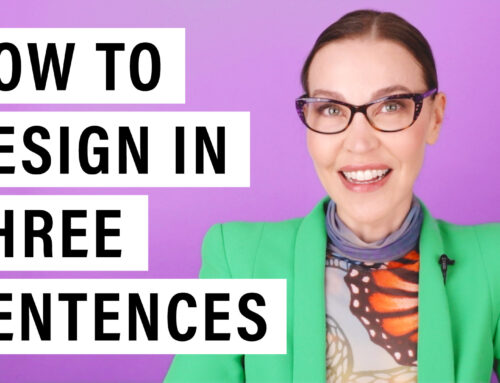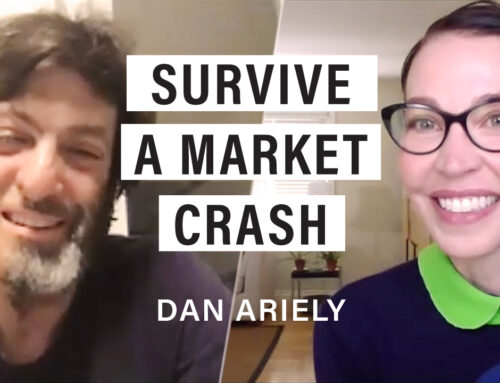Kerry K. Taylor: Yeah. I’m seeing, I’m actually seeing a lot of movement in the high-tech market. I come from a computer science background and all my friends are just job leaping, just so they can, they can, I guess, reset their income level because if you’ve been with a job five or so years, you’re kind of locked into just an inflationary raise and those raises aren’t reflecting actual inflation, right? They’re like 2%. So they’re not hitting like the four, the 5% that we’re actually seeing. So I’m seeing like there there’s movement in that sector.
Kerry K. Taylor: So I’m going to ask you. Okay. So if people are moving around or they’re thinking of moving around, how do we make sure that we’re getting a salary or that we’re getting paid what we’re worth?
Erica Alini: Yeah. So that’s super important, negotiating your salary and, yeah, job hopping is, the whole idea is that when you’re switching employers, you have more, I mean, you have more bargaining power than you normally would as an existing employee.
Erica Alini: You know, you’ve just, you’ve, you’ve gone through what could have, you know, probably wasn’t a grueling interview process you’ve been selected. You’re number one. You’re the person that they want. And now you get to ask. Right? And so it’s really, really important to, and, every time I talk about negotiating your pay, everyone assumes that I’m super comfortable with it. I am absolutely not. I am awkward. I am shy. It’s not something I like to do, but I’ve learned how important it is. So just, you know, psych yourself up and you, you gotta do it. And to do it right. You have to prepare. So how do you prepare? So yeah, you have to figure out like, what is, and you may get a pay range, but you might not.
Erica Alini: So you have to, you have to figure out like, what is a good compensation for the role? What is the competitive compensation for your role that, you know, that you’re, you’re getting. The best way to do that is to do your own on the ground intelligence, you know, gather your own on the ground intelligence.
Erica Alini: See if, you know, you have colleagues or former colleagues who have had that role that you’re applying for, or maybe manag e that role. So they would know what the compensation is. And just, just ask them. If it’s not their job, sort of ask them what’s, what’s the right compensation. If it is their job, you don’t want to ask them, so how much are you making? But a much better question to ask that’s not quite so forward is, you know, you play what, this HR expert that I interviewed for the book, Allison Venditti, she calls it the over-under game. So just, you know, pick a number that you think is you know, probably right.
Erica Alini: And say, hey, are you making more or less than X amount? And you’d be surprised she tells me Venditti was telling me, especially women are constantly surprised, they’re constantly undervaluing themselves. And so the over-under game, if you do it, you know, especially with a few people, you’re going to get a pretty good range and make sure if you’re a woman, make sure you ask men.
Erica Alini: With what they’re, you know, whether they’re making more or less than X amount that could help you make sure that you’re not sort of shooting yourself in the foot by asking for something that’s too low. Once you have a pretty good idea of the range it’s really important that you come up with an anchor value.
Erica Alini: So ideally you get to go first. You don’t always do, employers like to go first and they will low-ball you. So what you do then you do not want to go. If say you have a certain amount in mind, say, I don’t know, 75,000, you absolutely do not want to ask for 75,000. You want to ask for quite a bit more.
Erica Alini: So let’s say you’re going to ask for 85,000. That gives you a little bit of room to negotiate and make concessions and still hit that target that you have in mind. And once you’ve agreed on base salary, remember that even if you don’t, you know, especially if you don’t get like probably not in this market, but in a tighter market, you know, in a market where we have higher unemployment and some of a more difficult market, you might not get exactly what you want.
Erica Alini: But remember, there’s so much more you can ask for. And then adjust your base salary. There’s, you know, cash bonuses, stock options, there’s flexible work arrangements, super important. Especially if you have kids, you can ask to have a predictable schedule or, you know, at least know your schedule, maybe a week in advance.
Erica Alini: You can ask remote work is super important right now. You can even ask, and I didn’t know this, I learned this while I was writing the book that you can ask for the waiting period for health and retirement benefits to be waived. Sometimes employers are willing to do that, which I was like, you gotta be kidding.
Erica Alini: Cause I hate this waiting period. I wish I’d known that sooner. And sometimes, especially if you’re moving, say maybe from a government job where you have a really cushy pension to a private sector job that may be more competitive when it comes to pay, but less competitive when it comes to retirement benefits, you can ask, inquire about having a retirement payout.
Erica Alini: So basically a lump sum that’s meant to kind of make up for the fact that you’re moving from a more generous or less generous pension program or yeah, retirement.
Kerry K. Taylor: It’s almost completely opposite to what I learned. I always learned that the first, the person who mentions money first loses. So, you know, I guess the behavioral science behind it is showing that this anchor premise is what can really mess you up when it comes to getting what you’re worth right at right out, right out of the gate.
Erica Alini: Yeah, this is all based. It’s based on yeah. Behavioral research, and, yeah, I would like, negotiating, like negotiating anything. It’s not just pay, like, whoever goes first, like the first things that, you know, the first value or proposition that comes out in talks is generally like the anchor, like what we try to, our brain focuses on and if it’s low, it tends to anchor things down. Right. And that’s why you want to go high. Like if your employer is going low, like make sure you go high so you can meet somewhere in the middle. If you start out with what you want, you’re going to end up with less than you want.
Kerry K. Taylor: Yeah. I mean, I’ve made mistakes in negotiating my pay when I was working in high tech. And now that I’m a gig or freelance, you know, employee type, I have to renegotiate my, my paycheck every single time. And I have to say it’s really exhausting because it’s it’s nonstop. But one thing I learned really early on when I was in tech is that it really helps to have, I guess, an ally that works on the same team as you.
Kerry K. Taylor: This happened to me. So I learned that I was being terribly underpaid, like close to 20,000 and one of my team members who had the same education, the same background, the same skill level, he knew I was being underpaid. So when he left a job to job hop to another position, he left his, a note on my desk, what his salary was.
Kerry K. Taylor: And it was like, I couldn’t believe it, but that was like the biggest help to me, because then I realized I wasn’t just being paid 10 or 15% under. It was significant. So I was pretty angry and I went into HR and I’m like, you’re underpaying me. And they wouldn’t budge. So I said, see ya, I’m off, you know, I, I know what this job is worth.
Kerry K. Taylor: And it was great because he actually hired me in the job that he moved to. So, you know, I had another ally there and I was paid equally. But to so many women, we don’t know. Right. Because job salaries aren’t posted, they’re not public. I mean, I can use Glassdoor to try and help see and get kind of a baseline, but it’s just such a dark magic sort of thing to, to tease through and figure out.
Kerry K. Taylor: But I love the over-under game because I think that’s a really less abrasive and easier way to get to people to figure out, you know, where exactly I can be when I ask.
Erica Alini: Yeah, for sure. And I would say it’s super important to have an ally and I’ve had similar experiences. And also it’s very important to be an ally, right?
Erica Alini: Like even as a woman we know that racialized women, people with disabilities are underpaid even more. So just be, be open, share, so that, you know, we can all get the pay that we deserve.





Everyone should watch this podcast. So much of salary negotiation is “psychological” – knowing what you are worth and finding the employers that are willing to pay it. Often times, it is as simple as asking.